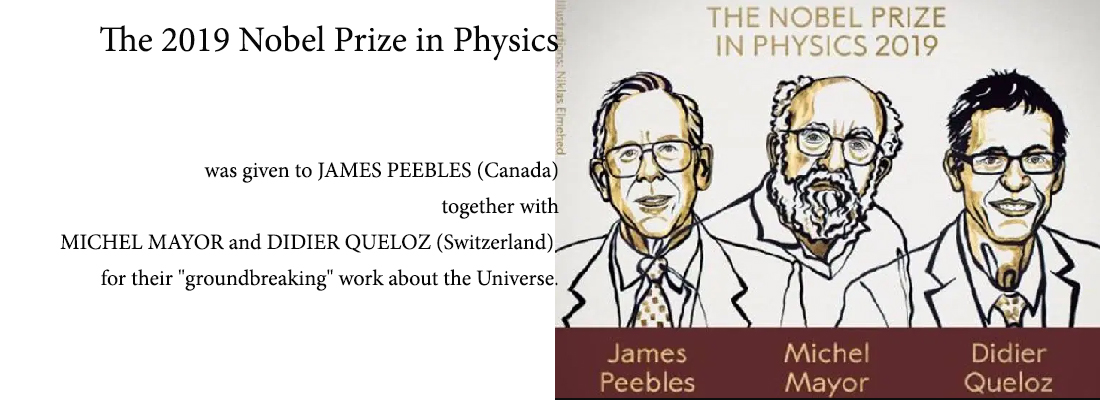
The 2019 Nobel Prize in Physics was given to JAMES PEEBLES (Canada) together with MICHEL MAYOR and DIDIER QUELOZ (Switzerland) for their "groundbreaking" work about the Universe.
The Nobel Academy in Stockholm, Sweden gives this award since 1901 and half of the $ 900,000 award is given this year to the evolution of the Universe and the other half to the discovery of a
distant planet orbiting a Sun-like star in 1995.
"These two awards tell us something existential about our place in the Universe. The first is to trace our unknown origin, which is extraordinary. The other is, trying to find answers to questions like,
‘are we alone?’ and 'is there life elsewhere?' "he said.
Cosmic microwave background radiation
Peebles, who received half of the prize, predicted the existence of a cosmic microwave background radiation (CMB), which, along with another group of physicists, emerged after the Big Bang
and provided information on the age, shape and content of the Universe. As is known, cosmic background radiation was discovered by Penzias and Wilson in 1965 and provided evidence to understand
how the Universe has evolved from childhood to the present day. James Peebles' theoretical discoveries have contributed to the interpretation of the sensitive measurements on this radiation.
Michel Mayor (University of Geneva) and Didier Queloz (University of Cambridge) who shared the second half of the award discovered the first planet in the vicinity of a dwarf star outside the Solar system,
rotating in the orbit of a star 50 light years (1 light year is the path that light travels in a year, about 10 trillion km in length) away. They were awarded for the discovery of a giant gas mass called "51 Pegasi b".
Dwarf stars, one of the most important topics in astrophysics, transform the hydrogen atoms in them into helium atoms by nuclear fusion.
